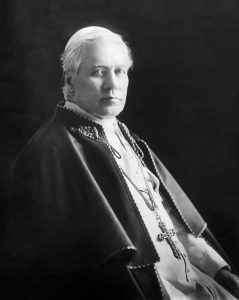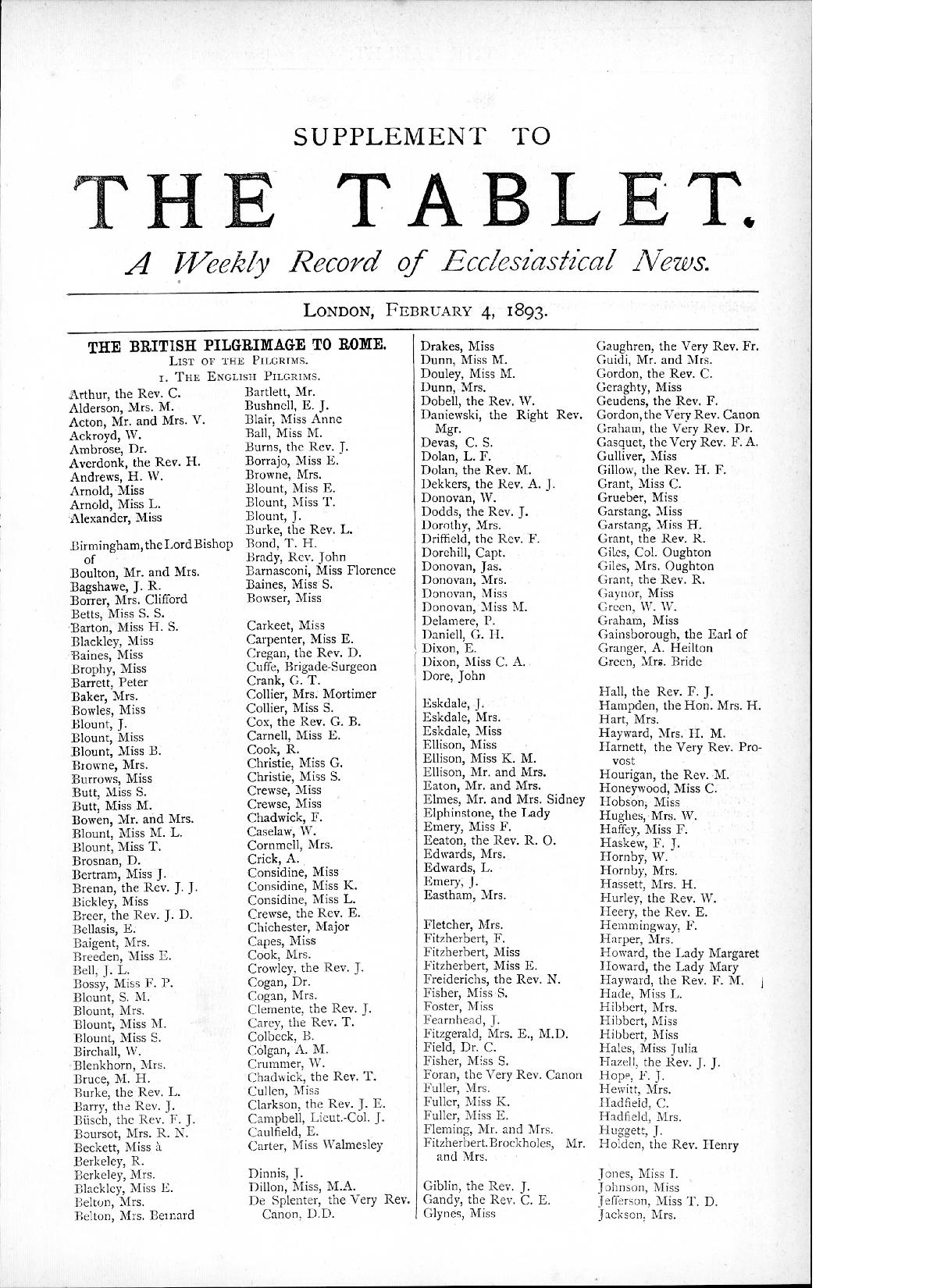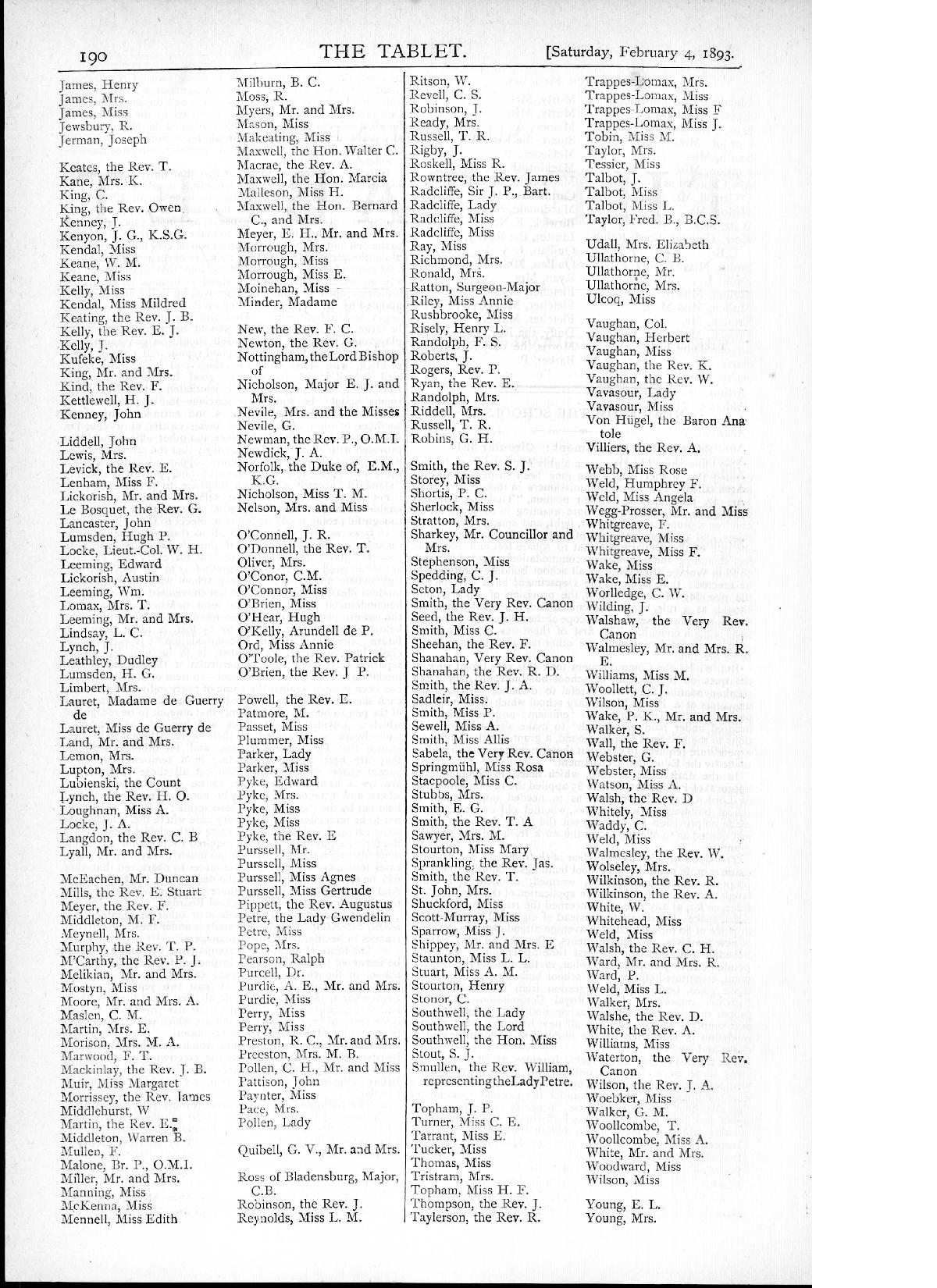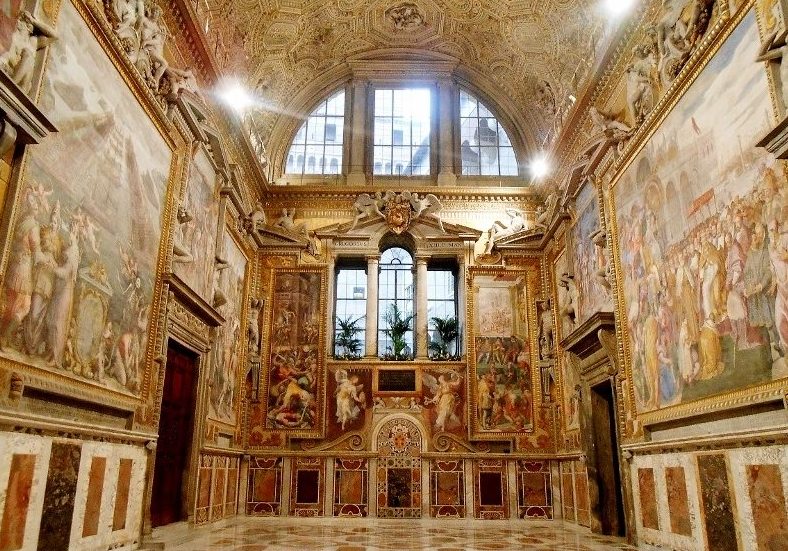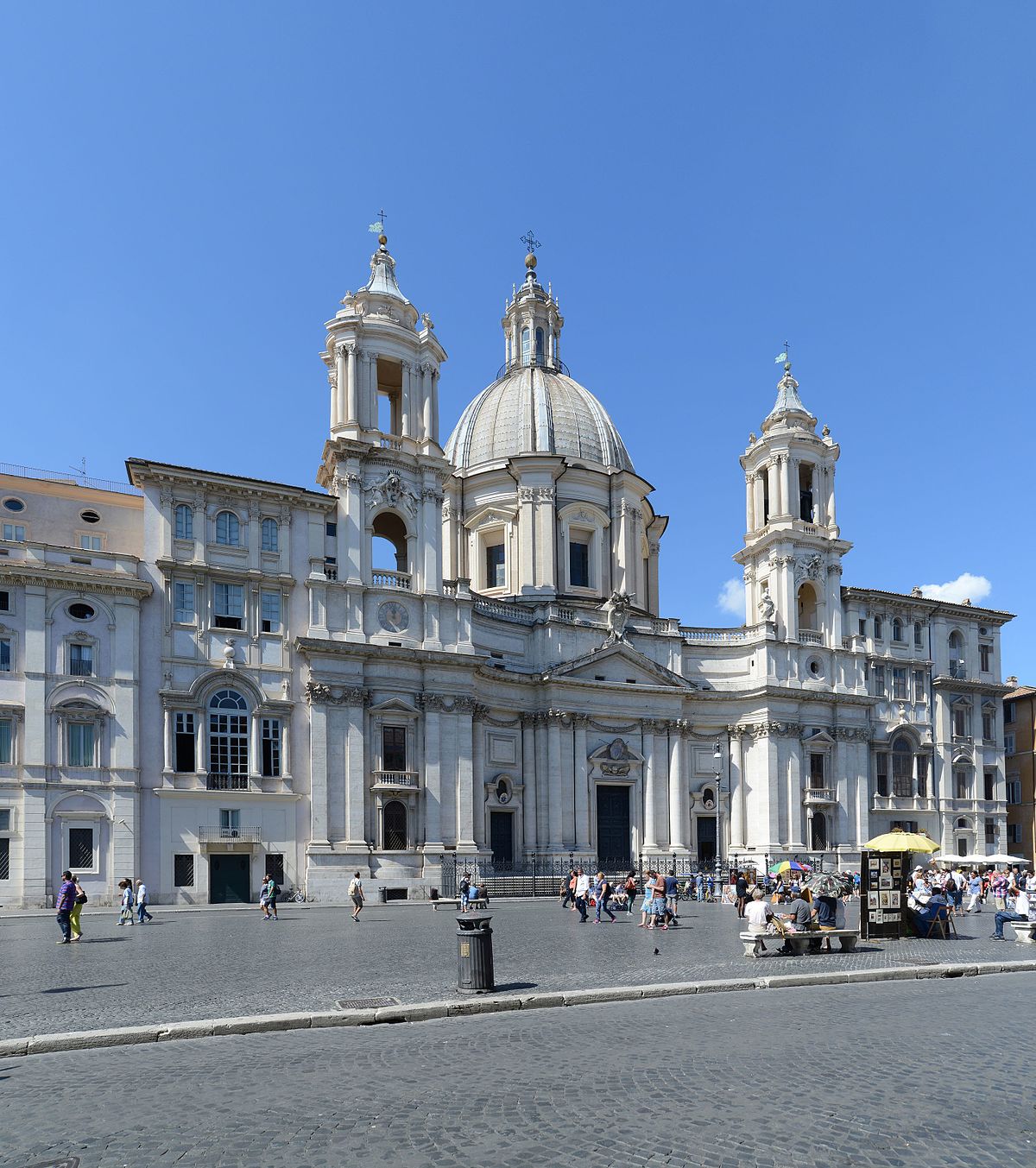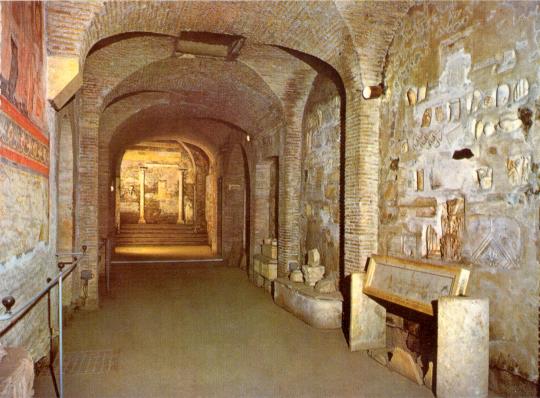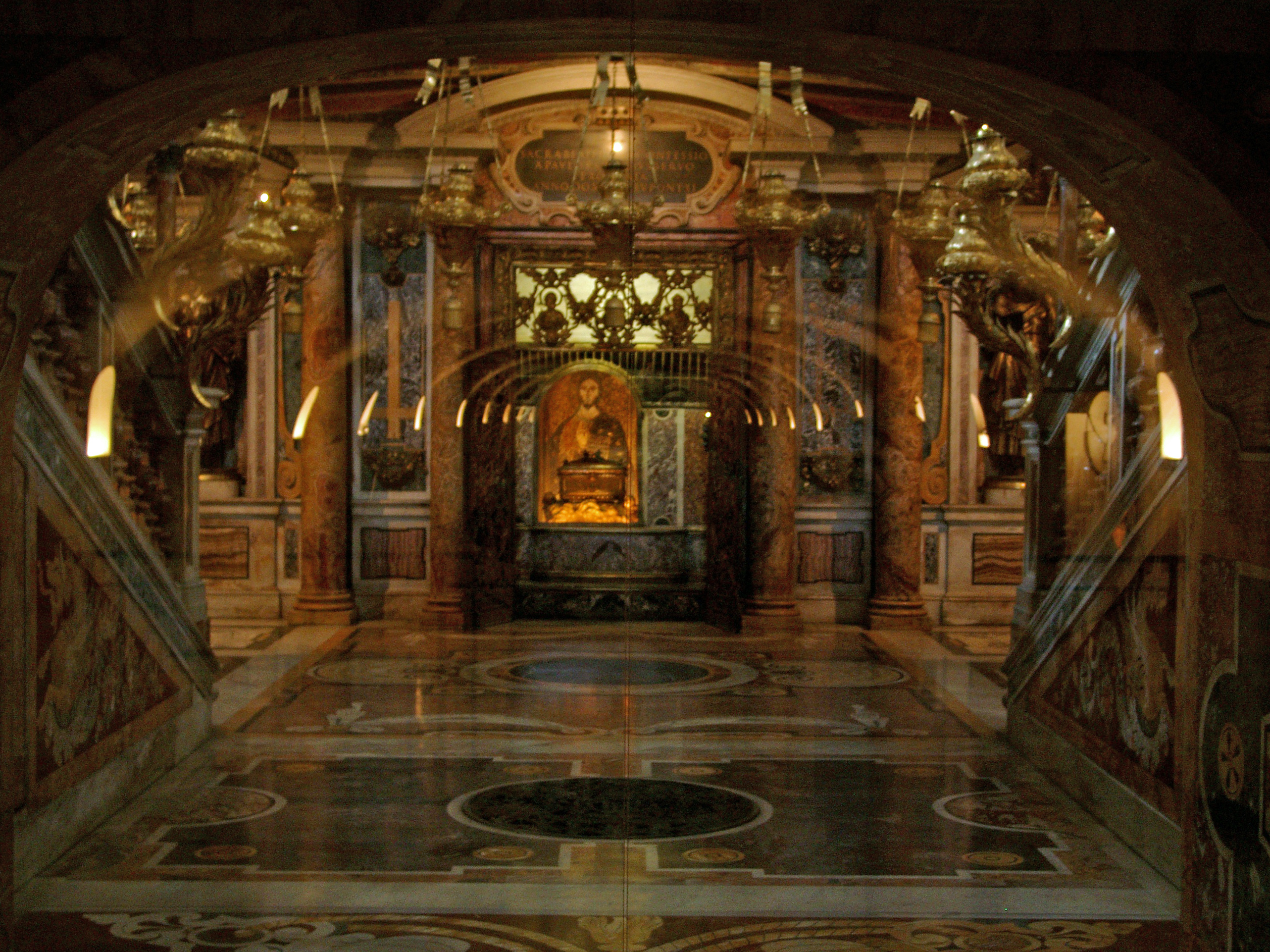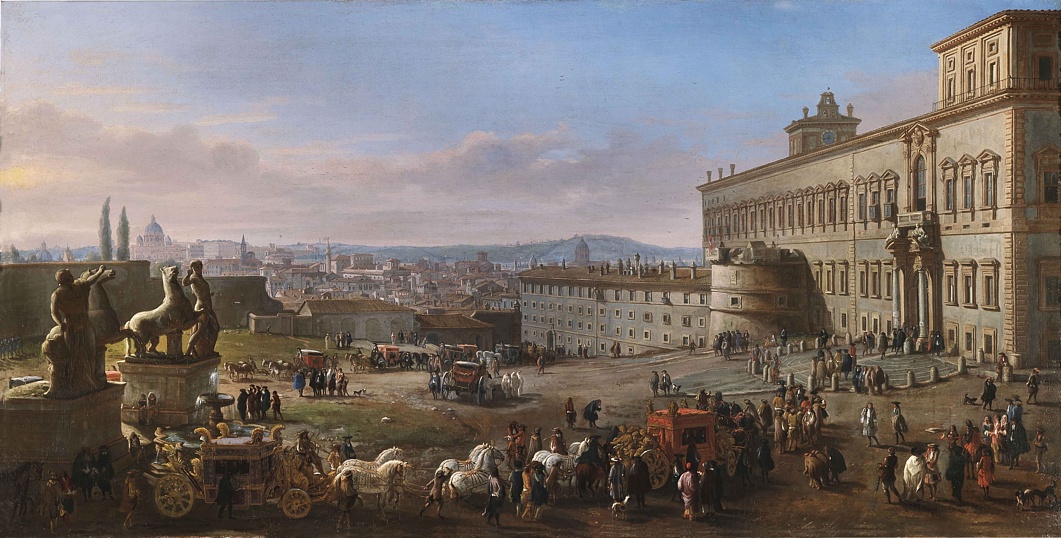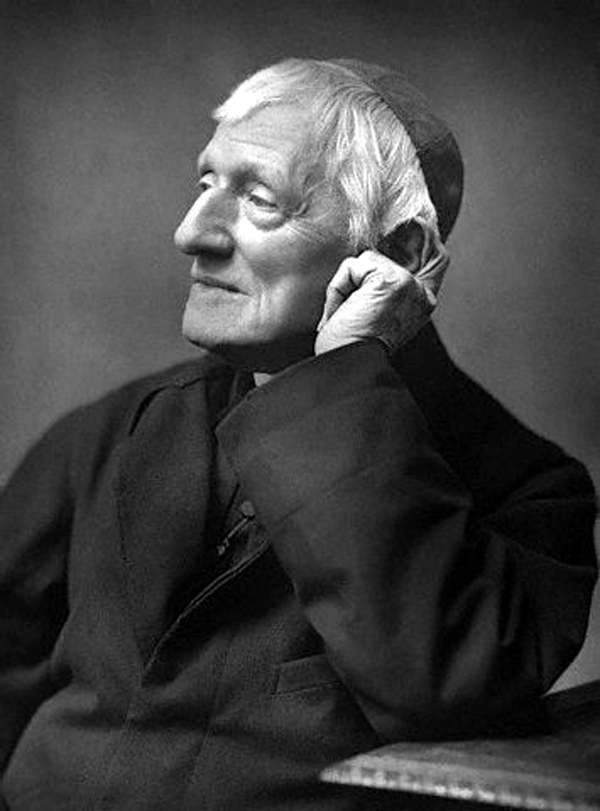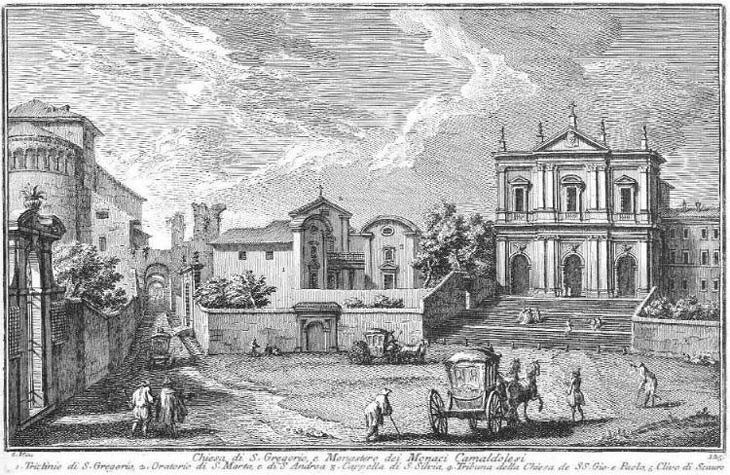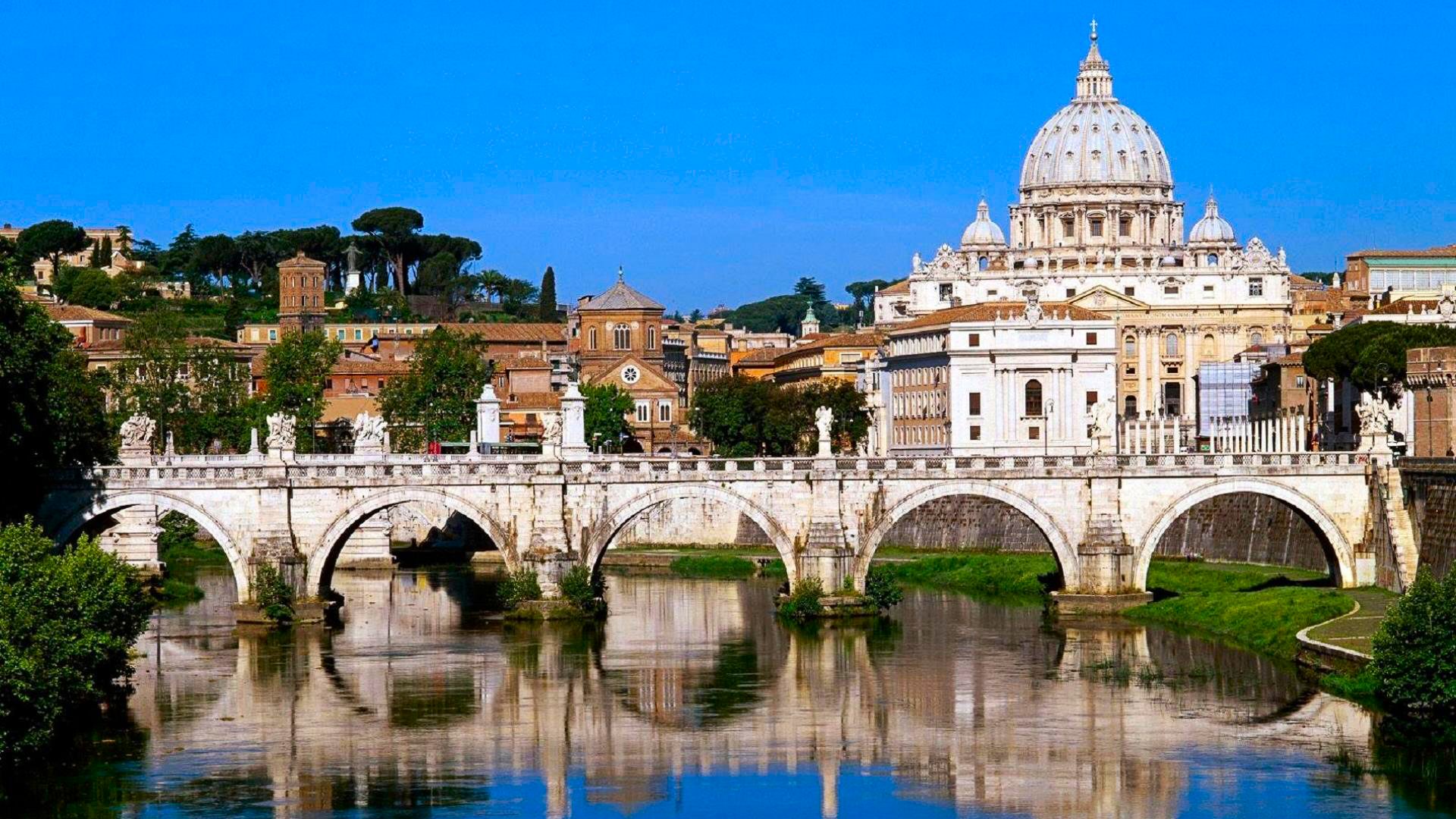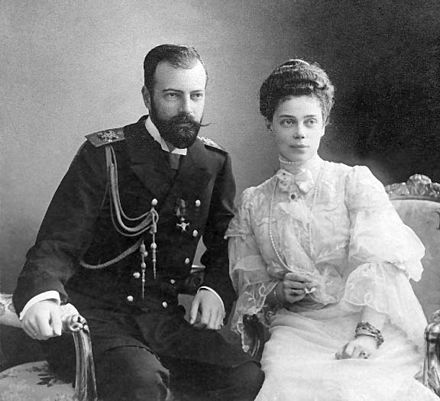The Battle of Mentana was fought on November 3, 1867 near the village of Mentana, just outside Rome, [about three miles] between French-Papal troops and the Italian volunteers led by Giuseppe Garibaldi, who were attempting to capture Rome, which was not unified to Kingdom of Italy until three years later.. The battle ended in a victory by the French-Papal troops. This is the report from “The Tablet” published on 23rd November 1867. As would be expected, it does take sides. It is still staggering that a Papal army was fighting just under one hundred and fifty years ago.
THE BATTLE OF MENTANA.
(FROM OUR OWN CORRESPONDENT.)
ROME, Nov. 8th.
The events of the past week have been so stirring that I preferred waiting till a correct appreciation could be formed of their weight and extent, to sending you a hurried and unsatisfactory account of the great triumph of the Pontifical army. An hour or two after posting my last letter on Saturday afternoon received notice from the ambulance that the muster of the columns which was going to attack Monte Rotondo would take place at three in the morning of Sunday, at the Piazza delle Termine, and that those intending to form part of it must be there a few minutes earlier.
The Sisters of St. Vincent de Paul, newly arrived on special duty from Marseilles, the Vicomte de Lupe, M. Keller (fils), De Ozanam and Mgri. Vergneaud, and Benoit D’Azy, under the direction of M. de St. Priest, formed the members of the French volunteer ambulance, and its place was in the centre of the attacking columns, immediately behind the artillery and cavalry. The night was rainy, but in spite of the weather the scene was picturesque beyond description. The troops were formed in line from the Baths of Diocletian to the Piazza Pia, and the red glare of the torches which lighted the march fell on the gigantic ruins of the Thermae, on the facade of the Maria degli Angeli, on the brazen helmets of the dragoons, and the Pontifical standard, which
“Wet with the mists, and smitten by the lights,
Blazed, making all the night a stream of fire,”
and guarded by the entire regiment of Zouaves, went on before us into the darkness, followed by the prayers and blessing of the Vicar of Christ, and the countless holy souls who were watching round the altars and in the cloisters of the Eternal City.
The long line, measuring more than three-quarters of a mile from van to rear, began to wind slowly through the Porta Pia, and the quick rattle of officers on horseback passing our carriage told us that the general and his staff were taking their place at the head of the column. General Kanzler was accompanied by his Royal Highness the Comte de Caserta, MM. de Bourbon, Charles de Maistre, Ungarelli, and a brilliant staff of officers. Colonel Allett, with M. de Charette, and the commandants De Troussures, and De Lambilly, headed the Zouaves. The Swiss under the commandant De Castella, the artillery commanded by M. de Nadin, the dragoons by the Count Von Loiningen, and the Legion by the Comte D’Azy, formed the effective force of the Pontifical column, numbering about six thousand men. The reserve was given to the French, under General Polhes, General Kanzler claiming the honour of the first attack. In spite of the bad weather, the troops were in the highest spirits. Most of the Zouaves had not slept save for an hour or two for twelve nights, from the constant alarm and fatigue duty, but there was no sign of wavering when the bugle sounded, and as the Porta Pia was passed and the column was fairly in the open country, the pace was quickened, and by the time the first dawn broke cold and grey over the Sabine Mountains, the troops had accomplished nearly half their march.
The sun rose at last, and though the weather was chill, damp, and threatening, the rain ceased, to the great satisfaction of every one. At the Ponte Nomentana three companies of Zouaves were detached from the column, and under the conduct of the commandant De Troussures, executed a movement to support the French reserve, and attack the Garibaldians at their flank outposts at Mentana, a village about two miles in advance of Monte Rotondo on the Roman side by the Ponte Manola road.
The Ponta Nomentano was secured and a strong guard of French chasseurs was left in charge of it to guard the retreat.
About five miles beyond Ponte Nomentana a halt was sounded, the hour being nearly ten o’clock, and the troops breakfasted. The pious Dominican chaplain, Pere Lignir, who, with Mgri. de Waelmont, Bastide, and three Jesuit Fathers, accompanied the ambulance, celebrated the Holy Sacrifice in presence of the army in a little wayside chapel attached to the Osteria. For many present it was their last Mass, and the devotion and fervour with which it was assisted at by the Zouaves especially, it is impossible to describe. By eleven we were again on the march, our route lying over the Campagna in a north-easterly direction, the villages of Monticelli, San Francesco, and Palombara lying to our right, and Tivoli in the same direction, bet further down the flank of the Sabine. The march became slower, for the heavy clay clung to the wheels of the carriages, and the artillery was constantly requiring to be lifted out of the mire. This continued across the Campagna for about two miles, and then the soil became lighter, and as we neared the village of Mentana the country became more wooded, and showed signs of enclosure and cultivation, and the road more practicable. Mentana was still invisible, being concealed from us by a circle of woody eminences, all of which we had reason to believe were occupied by the Garibaldians, and we knew that at Mentana itself they maintained a force of 700 men as the advanced post of Monte Rotondo, and General Kanzler had, even from the beginning, prepared for a stout resistance there, and took his measures accordingly.
The road by which Mentana was to be reached runs up a ravine lying between hills covered with light brushwood, and when we reached the first eminence above the champaign country, flanking companies were detached ” en tirailleur,” on either side of our march to prevent a surprise, and the artillery passing to the front, took up a position on a round hill commanding the ravine and the opposite heights, two ranges of hills, about 800 feet high, separating us from the enemy, who, as yet, gave no sign of life.
The bugle sounded from the Zouave ranks far on ahead ; General Kanzler and his staff, with the Count of Caserta, cantered up the line, and we finding that our drivers were not particularly anxious to pro-ceed further, with the prospect of immediate action, got down and proceeded on foot a little in the rear of the troops, to a point where we could observe the attack and where we resolved to establish our first ambulance.
We had not long to wait before the first sharp crack of the rifles broke the silence. From the bill we occupied we could plainly distinguish the scarlet shirts of the Garibaldian skirmishers, through the hazel and alder copsewood, and, in a few seconds, the whole edge of the heights was alive with their troops. Volley after volley rung through the thickets, and our cannon responded gallantly, doing terrible execution on the enemy, and protecting the advance of our column.
The Zouaves had, of course, the post of honour and of danger, the guerdon of their undying chivalry and devotion. Company after company swept by our post, the officers and men saluting the Sisters of St. Vincent of Paul, who, for the first time since their foundation, accompanied an army to the open battle-field ; and the cry of ” Vive la France ! Vive Pie IX. !” went up like a clarion note from the hearts of 2,000 Christian gentlemen, ready, as were even their crusading fathers, to die for God’s cause and the triumph of the Church. Up the ravine they swept, Charette at their head, on his superb chestnut horse, his clear bright eye . gleaming with the light of battle, and his noble features looking prouder and nobler even than their wont in the excitement of the hour. Gallant old Alett, sitting calm and square on his stout charger as he sat at Castelfidardo, when his fugitive regiment of Swiss left him alone on the field to fight side by side with the Zouaves he now commands. De Lambilly, De Saizy, and Le Gouidec, D’Albions, De Fumel and Thormelet, Breton, and Provencal, and Swiss, each at the head of their company, passed on. There were some of English birth too, who shared the honour of the day, George Collingridge, Roland Cary, Wilfrid and Julian Watts Russell, Charles Woodward, were all in the ranks, brave and devoted as any Frenchman there, and longing to rival their comrades for the honour of Catholic England and the expiation of her past coldness in the cause. Past, let us trust and believe, forever!
The five first companies formed ” en tirailleur” and charged rapidly up the pass. The ” 6me du ler,” the compagnie d’elite, of which almost every man is a noble, was the first up the hill, and the shot from each side of the ravine made terrible havoc in its ranks. De Cathelineau was among the first who fell, and as the columns neared the top of the hill; which is crowned by a farm and gateway, called the Villa Santucci, the combat became more dreadful. The Garibaldians had fortified the buildings, and defended by its walls, their sharpshooters kept up a deadly fire on the Zouaves. The Sixieme was mounting to the assault two or three hundred yards below the villa, when its brave captain, the Comte de Vaux, waving his sword and cheering on his men, fell, shot through the heart, and never spoke again. He only lived a few moments, but long enough to receive the last absolution on the field of battle. He had confessed and communicated, as had every man and officer present, the day before he died as a soldier might dream of dying. I saw him a few minutes later, when, the heights being carried, we established a second ambulance in the Villa Santucci. He was lying with his sword still in his hand, his eyes raised to heaven, a smile on his lips, and the cross of Castelfidardo, which had been struck by the fatal bullet, carried into his heart, where it was found imbedded after his autopsy.
The fire now slackened, and the rear companies, which guarded the Papal Standard and were ranged, not ” en tirailleur” but in battle order, suffered severely but never broke their ranks. The sound of the fusillade mingled with the word of command, ” appuyez à droite,” ” appuyez à gauche,” as men fell and their vacant place was filled up. There was a moment of hesitation—and only a moment—and Charette pressing to the front cried “A moi! Zouaves atia bayonette. Chassez moi cette canaille. Vive Pie IX !” and waving the kepi of a Garibaldian chief he had taken in the early part of the charge, he spurred into the hottest of the fire. The balls literally rained, rattling and hissing through the yellowing oak leaves; one struck the sheath of his sabre, and another wounded his horse, which became unmanageable. The Comte Joseph de Pavillon, who had just taken Major Fabrizi’s horse in a single combat, in which the Garibaldian chief was mortally wounded, came up at the moment, and M. de Charette mounting it continued to expose himself with bravery so unthinking that it is a miracle that he escaped with his life.
A moment’s lull in the fire, and a new cry of ” Vive la France” sounded from the heights to the left, and the quick rattle of the Chassepots [a new type of French breech-loading rifle] told us that Polhes’ brigade had engaged the Garibaldian left. Castella and his Swiss regiment of Chasseurs came in sight, the Zouaves gave another and louder cheer, and the enemy falling back pell melt, retreated on the village, leaving the height of Villa Santucci in the hands of the Pontifical troops.
On reaching it, far down the flank of the opposite hills we could see the village of Mentana itself; its every house, its feudal castle, its church and walls, bristling with Garibaldian rifles. The heights above it were still in their possession, but the French were pressing hotly on their outposts, and on the road below the farm up to the gate of the village, which was strongly barricaded with earthworks, the 1st, 4th, 5th, and 7th companies of Zouaves were advancing. The Swiss were moving up in reserve, and we found their brave commandant, whose horse had just been killed under him, severely wounded in the knees and unable to move, but propped up against the wall and still directing the movements by voice and arm, till his regiment had advanced out of sight and earshot. Then alone was M. De Castella persuaded to accept the services of the surgeons, and retire to the farm to have his wounds dressed.
The battle swept down the valley and raged hot and furious round Mentana. The wounded soon became too numerous for the second ambulance, and we were obliged to establish a third nearer the field of battle, in a chapel between Montana and the Villa, where General Kanzler and the staff now took up their head-quarters, as well as a part of the ambulance service. From where I was, at the bottom of the second bill, I could distinguish the attack on the gate of the village and the movement of the troops. The Garibaldians were at least 14,000. The extent of ground they occupied and the arms found at Monte Rotondo, prove that their number was greatly under-stated by the official accounts at first published.
The 1st company was among the foremost in the attack on the gate, and it was here, about four in the afternoon, that our gallant young countryman Julian Russell fell, shot through the head, the second martyr England has given to Rome, and a fitting rival of Louis Guerin in youth, bravery, innocence, and devotion to the Church. Here, too, fell the Sergeant Lairon, a Breton, known and reputed in the entire regiment for his piety and courage. M. De Montbel was close to him when he was struck, and ran up to help him. ” Leave me,” he said, ” I am dying, and I die for Pius the IXth. You are wanted in the front, but tell my mother I did my duty, and give her my watch for the poor.”
Here, too, fell Walerond, Baron D’Erps, chief of a great house of North Brabant ; M. De Boischevalier, and Alfred Laroyse, whose family, one of the most considerable in Lower Canada, sent him to represent that faithful colony in the army of the Church. The two latter gentlemen were only dangerously wounded, but there is little hope of their recovery.
Another act of devotion deserves mention here. M. Jean Moeller, one of the celebrated Catholic Belgian writers of that name, served as Lieutenant of Zouaves at Castelfidardo with great credit, but his extreme youth in proportion to his grade and his want of experience were not in his favour in the regiment. A few childish acts were misinterpreted and very harshly judged, and he was obliged to give up his commission. He returned to Brussels to maintain his family in an honourable financial employment, but at the first outbreak of war he returned, entered as a simple soldier, and, serving under the orders of the very men he had once commanded, was among the first to enter Mentana, and flinging his kepi within the Garibaldian lines, followed rifle in hand, and was shot down severely wounded, but the position was carried by his comrades, and he was removed to the rear. There are many among the older students of the English College who know him and who will be glad to hear of their old Zouave acquaintance distinguishing himself so gallantly.
The twilight was coming on before the battle gave any signs of relenting. The Garibaldians fought every inch of the ground with desperate bravery, and their magnificent position, chosen with care and strategical knowledge, which proved the direction of high military knowledge, gave them every advantage, but the light was waning and a suspension of arms inevitable for the night. Menotti Garibaldi and his father had been seen twice in the early part of the fighting, the former on a white horse and the latter in a carriage, on the Monte Rotondo road, but they did not expose their person much according to the testimony of their followers, who are much dissatisfied at their leaders.They all, however agree that Ricciotti Garibaldi behaved most gallantly and shared every dangerous part with his soldiers, by whom he appears much beloved for his kindness of disposition and superior education. Two Garibaldian officers in the grey uniform of the Guides were all through the day remarkable for their courage and sangfroid, and the Zouaves are unanimous in their testimony to it. The Garibaldian marksmen were remarkably good, and two of them picked off the artillerymen one after the other,, ten loading for them as fast as they discharged the shots.
The superiority of the Chassepot was, however, clearly proved, and the terrible havoc in the enemy’s ranks was only realised when the battle was over and the wounded brought in. The patrols went up and down the ground with torches, and under every hedge, behind the walls, in the outhouses, and under the bracken were lying the unfortunate men ; many dead more dying and desperately wounded, and some able to walk, and too glad to surrender themselves prisoners and receive the best care that could be afforded them, and which was given by Dr. Ozanam and the Sisters to Garibaldians and Zouaves alike.
At five in the evening the firing ceased, and General Kanzler ordered a recall to be sounded and a camp formed round the Casa Santucci, whose elevated position rendered it the strongest post in our possession. The Zouaves soon returned with the Swiss, the chasseurs à pied, and the dragoons, and preparations were made for the bivouac. The French line was picketted in the ravine and the Legion on the open space below the ravine, round the little chapel where the first ambulance had remained under charge of Dr. Ceccarelli and Mgr. De Waelmont. The:night was a dreadful one—a cutting tramontana wind had set in, and four-fifths of the wounded at the lower ambulance could not be got under shelter, the chapel being too small, and they were obliged to be left on the ground, covered, as best we could contrive, with the scanty blankets of the train. Our water, too, ran short, and the wells being in the hands of the enemy, the sufferings of the poor soldiers were dreadful.
With the Sister Superioress and the surgeon and chaplain I spent the greatest part of the night on that terrible battle ground—the faces of the dead lighted up by the red glare of the camp fires, and now and then by a cold watery moon breaking through the storm clouds and rendering the scene ghastly beyond description. The cries of our unfortunate wounded were ringing in our ears, and we had not one pint of water left to give them. One poor Breton Zouave, to whom I was giving the last orange left in the ambulance, whose sufferings were dreadful to witness, from thirst, insisted on dividing it between two of his fellow wounded, both of them Garibaldians. It was his last act of heroic charity, for he went to receive his reward before daybreak.
We returned to the ambulance of Casa Santucci about three in the morning ; all along the road the dead were lying, the immense majority being Garibaldians. The body of one, an officer evidently, was guarded by his dog: the poor faithful creature sat there through the night and all next day, crying piteously, and would not be induced to leave it. When its master was buried the French office of the 59th took it home to their regiment, but for days it refused to eat or to notice any one.
About five in the morning the Comte de Christen arrived from Rome bringing important despatches from General Dumont, requesting the commander-in-chief, General Kanzler, to postpone his attack on Monte Rotondo till nine o’clock, as by that time a reinforcement of two French regiments and a heavy siege train would reach Mentana.
Preparations were, however, made for hostilities, and General Kanzler expected the Garibaldians to attack the Pontifical headquarters, and,by seven all was ready to recommence the battle. Still the Garibaldians remained perfectly inactive, and it would be difficult to imagine the astonishment of all present when, about eight o’clock, a flag of truce was hoisted from Mentana and a ” parlementaire,” on horseback, evidently an officer of some standing, appeared at the end of the avenue leading up to our lines.
Having been conducted to our head-quarters, he offered, on the part of the Mentana garrison, to surrender at discretion, Garibaldi having previously evacuated Monte Rotondo during the night.
The terms were of course accepted, and a few minutes after twelve hundred Garibaldians were marched into the Pontifical lines and sent under escort to Rome. The banner of Pius IX. was hoisted on the bastions, the Battle of Mentana was won, and Castelfidardo avenged !
The General and his staff started about eleven with the greater part of the troops to occupy Monte Rotondo, and the combatants busied themselves in the transport of the wounded. Prince Lancillotti, of whose courage and devotion it is impossible to speak too highly, rode off to Rome with General Kanzler’s despatches, and returned in the afternoon with fifty carriages, the Borghese, Patrizi, and all the great families sending their breaks and open carriages for the use of the ambulance. MM. les Ducs de Luynes and de Lorges, two of the oldest members of the French Peerage, were among the most active assistants, as well as MM. de Luppe, De Vergneaud, Keller, De Benoit d’Azy, under the direction of Dr. Ozanam. Of the services of M. de St. Priest and the Sisters of Charity I need not speak— they were indeed worthy of true children of St. Vincent of Paul.
